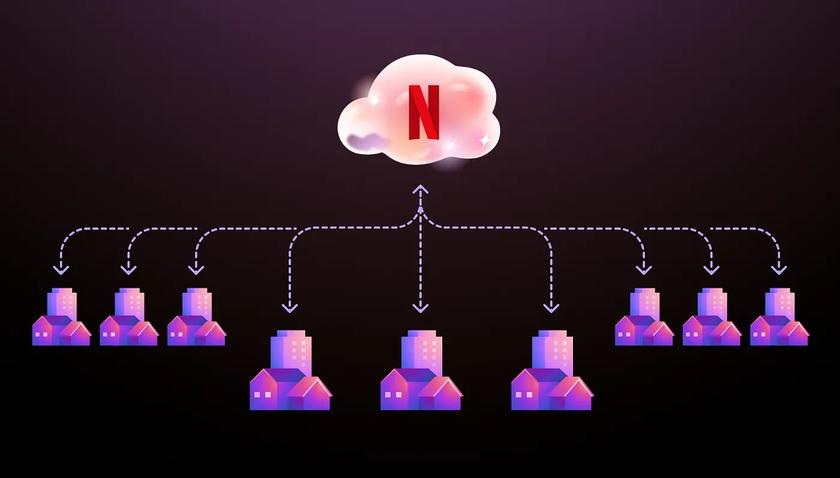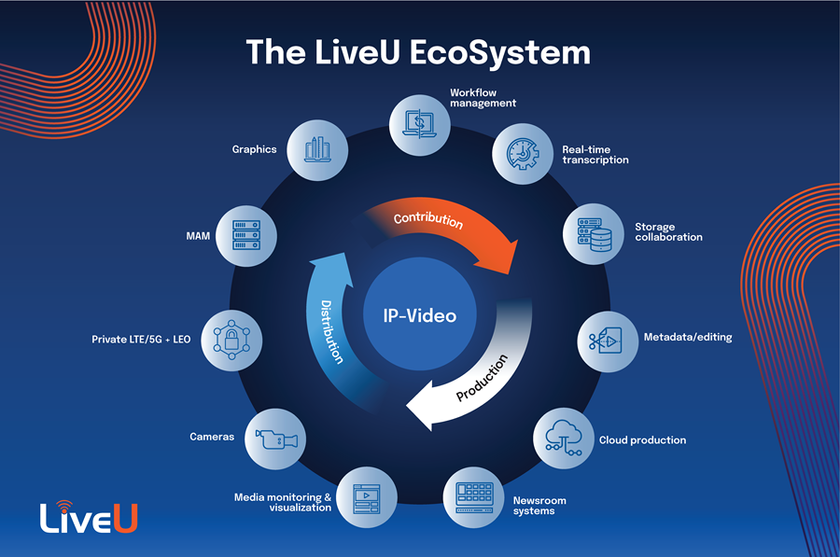Survey: Consumers Want Better Bundles to Simplify Streaming
Hub Entertainment Research study finds that helping viewers manage multiple services with better bundles can reduce “revolving door churn”

PORTSMOUTH, N.H.—As streamers wrestle with high churn rates, a new study from Hub Entertainment Research provides some insights into how companies can use better bundles to reduce the number of consumers who are canceling services and improve customer loyalty.
The researchers noted that while “Bundling 2.0" is certainly back in fashion, crafting better bundles for savvy consumers who have more choices than ever before isn’t easy.
Multiple streaming services are still needed to replicate the "all-in-one" of cable TV days of yore, and viewers increasingly worried about managing and keeping track of the monthly subscriptions hitting their credit cards are outpacing their ability to keep track, the researcher said.
Another important factor, is the fact that the growth of free ad-supported streaming TV (FAST) services and more sports content migrating online continue to complicate the viewing landscape.
While Hollywood is responding with new bundles from distributors (Comcast, Charter, others) and streamers (Disney, Netflix, Max, others), it remains an open question as to how well those efforts will work.
Hub’s annual “Best Bundle” study tracks the services that form the foundation of consumers’ bundles, the ones that serve as add-ons, and how these metrics change over time.
One key finding is that consumers use more than seven TV sources to juggle their viewing needs.
Get the TV Tech Newsletter
The professional video industry's #1 source for news, trends and product and tech information. Sign up below.
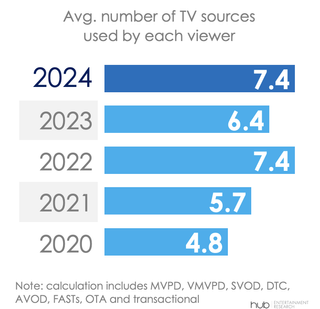
Hub's 2024 survey reveals that consumers are indeed pulling together more than a handful of TV sources - both traditional and digital - to get what they want. In fact, this year saw a bounce back to an average of 7.4 services used, after a dip in 2023.
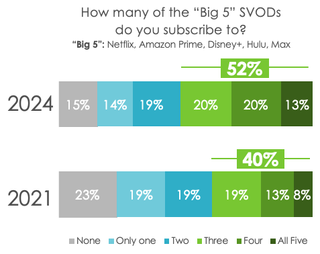
The number of viewers "stacking" three or more of the major streamers (Netflix, Amazon Prime, Disney+, Hulu & Max) grew to half of users in 2024, with even more growth coming from the nearly two-thirds of people using FAST services (like TUBI or Pluto) to round out their TV diet:
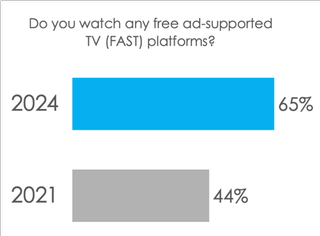
Juggling multiple services propels “revolving door” churn, the researchers argued.
Despite growth in using multiple services, consumers aren't necessarily keeping them for the long term. "Revolving door churn" is seen in roughly a third of viewers who say they intend to both add and drop services in the next six months. These people are chasing specific programs or a promotional deal and then cancel services until something else catches their eye.
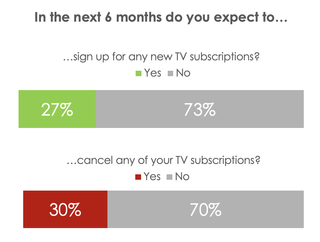
Helping consumers bundle services in more meaningful ways will improve loyalty, the study found.
Short-term subscriber mentality makes managing multiple services more challenging than ever and creates opportunities for studios to better bundle subscriptions. Nearly three quarters of consumers find a service that could help to manage multiple subscriptions in one place as appealing.
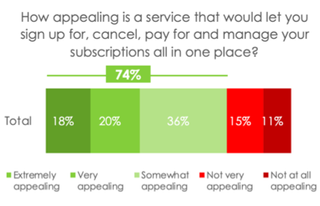
“Consumers are overwhelmed by the fragmented landscape of streaming services and are well-positioned to migrate to more streamlined solutions,” says Jason Platt Zolov, consultant for Hub. “New streaming bundles recently announced are a step in the right direction – and those which communicate a clear price/value solution will be well-positioned to help stabilize challenges with churn.”
Findings come from Hub’s 2024 “The Best Bundle” report, based on a survey conducted among 1,603 US TV consumers with broadband, age 16-74. Interviews were completed in early April 2024. A free excerpt of the findings is available on Hub’s website. This report is part of the “Hub Reports” syndicated report series.
George Winslow is the senior content producer for TV Tech. He has written about the television, media and technology industries for nearly 30 years for such publications as Broadcasting & Cable, Multichannel News and TV Tech. Over the years, he has edited a number of magazines, including Multichannel News International and World Screen, and moderated panels at such major industry events as NAB and MIP TV. He has published two books and dozens of encyclopedia articles on such subjects as the media, New York City history and economics.


